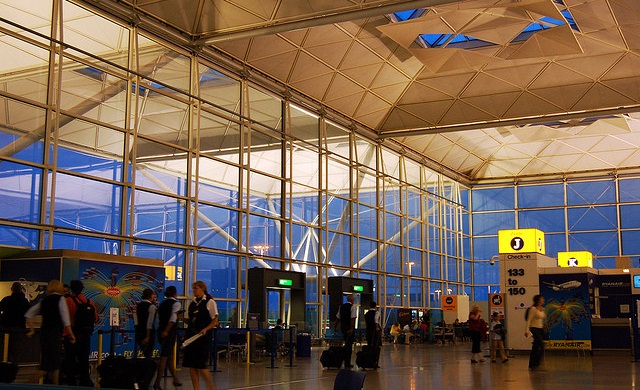A long time ago, in a land far away (the U.S.), I learned that a company’s worth is not strictly quantitative. Sometimes it is about “The Story.” You see, vision is not something that can be quantified. The numbers only tell you where you are on the road to reaching your vision. Without a vision, there is no story. And without a story, there is nothing to tell.

I can’t help it. I am fascinated by “The Story” of Fastjet (LSE:FJET). Looking strictly at charts and numbers, investors apparently don’t think “The Story” is very pretty. But neither was the story of “The Ugly Duckling” in the beginning. Fastjet’s share price had tumbled by 1.49% by noon UTC today to 0.99 per share. From a numbers perspective, the share price has nose-dived from above 4.40 at the beginning of 2013 to barely flying above the treetops at its current price. That’s scary for analysts and investors. And if that’s not enough to cause the oxygen masks to come down for those who are already along for the ride, the company is heavily weighted toward fixed assets with only £0.41 of working capital.
On the other hand, according to “The Story”, the airline is succeeding in its operational vision. I realize that the downside of vision is that it doesn’t have a payback until the vision is achieved, just as there is no cup for Arsenal just because it has a vision of a championship. In my humble opinion, Fastjet is moving apace in the right direction. I suggest that the ‘fraidy cats” should not stop reading “The Ugly Duckling” until they get to the end of The Story.
Since our last feature article about Fastjet on 14 June, the company reported record passenger sales of £2.2 million for that month, a 22% increase over May 2013, spurred largely by a 78% passenger load factor, which itself was up 10% from the previous month. In the same period it reintroduced a Kilimanjaro to Zanzibar flight and received final government approval to fly the very lucrative Tanzania to South Africa routes. Having secured their Foreign Operator Permit from the South African Department of Transport, on 04 July, CEO Ed Winter said the he believed that the company is “well on our way to becoming the first pan-African low-cost carrier.” Now that, my friends, is “The Story”.
However, some, if not many, investors may not have been enamored with the company’s announcement yesterday that it had applied to the London Stock Exchange for permission to issue 110,334,156 additional ordinary shares to Sir Stelios Haji-Ioannou in lieu of payment for royalty and consultancy fees. That will scare the numbers people because they read that news as “Fastjet can’t pay its debts“. It will scare shareholder numbers people because the issue will dilute their voting rights. “The Story”, however, is that Sir Stelios and his privately-held easyGroup investment vehicle have the confidence that “The Story” is going to end happily ever after.
I don’t have to guess what Stelios is thinking. He made it quite clear that he believes “The Story” when he said, “A year ago the company had very little other than a vision to start operating a proper, low-cost airline in Africa. Today, some nine months after the first Airbus 319 flight in Tanzania, Fastjet has demonstrated that travelers in Africa will react in exactly the same way as consumers elsewhere, to the availability of low cost fares. The roll out of this embryonic operation from Tanzania to the rest of Africa will clearly take both time and more investment. I have faith that the extensive airline experience of Ed Winter and his management team will take the company to the next level. There is only one continent on earth where low air fares are not widely available yet. I believe Fastjet is now well placed to capture this final frontier.”
Numbers people will tell you that you have to believe what the numbers are indicating. Numbers people are a boring necessity. They spend all of their time doing the math, so they never take time to read “The Story”.


 Hot Features
Hot Features













